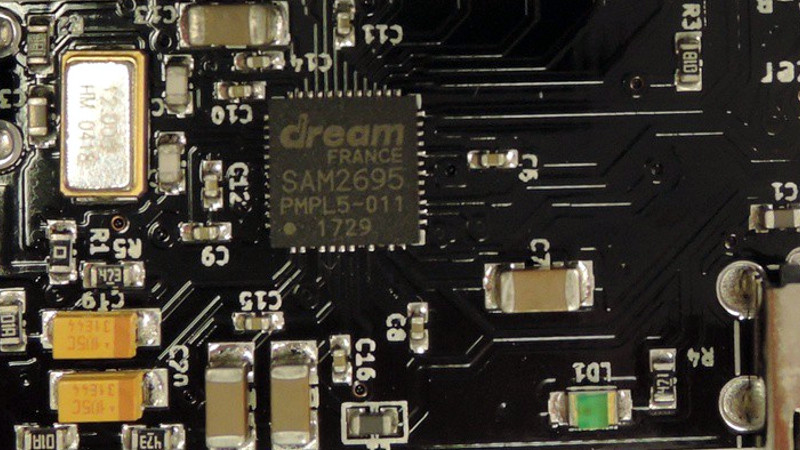It is a great shame that back in the days when a typical home computer had easy low-level hardware access that is absent from today’s machines, the cost of taking advantage of it was so high. Professional PCBs were way out of reach of a home constructor, and many of the integrated circuits that might have been used were expensive and difficult to source in small quantities.
Here in the 21st century we have both cheap PCBs and easy access to a wealth of semiconductors, so enthusiasts for older hardware can set to work on projects that would have been impossible back in the day. Such an offering is [Serdef]’s Tiny Parallel Port General MIDI Synthesizer for DOS PCs, a very professionally produced synth that you might have paid a lot of money to own three decades ago.
At its heart is a SAM2695 synthesiser chip, and the board uses the parallel port as an 8-bit I/O port. The software side is handled by a TSR (a Terminate and Stay Resident driver loaded at startup, for those of you who are not DOS aficionados), and there are demonstrations of it running with a few classic games.
If the chip used here interests you, you might like to look at a similar project for an Arduino. The Kickstarter we covered is now long over, but you can also find it on GitHub.
















Wow, never heard of that chip. Sounds amazing! Very cool to have a standalone MIDI player on a chip.
There is also the older version, SAM2195. And VLSI has the VS1053b which is a general audio codec chip (mp3, wav, etc) that can also do MIDI playback. But supposedly Dream.fr chips sound better.
I can vouch for the VS1035b. Solid performer imho :)
requires softmpu, means 386+ and works if you are lucky, not to mention no sound effects. I really dont get LPT music only interfaces like this and OPL2LPT.
might as well use tablet/laptop as a synth for free at this point
https://www.youtube.com/watch?v=vSk9S1bkRS8
[serdef] also created OPL2LPT as well as some other LPT audio contraptions. I’m sure there are some retro PC collectors out there that want to game on older laptops that appreciate his work.
at the very least, 16-bit PCMCIA sound cards are hard to come by. If you have an older laptop with no audio or only a Type I slot this is intriguing.
It’s for us grey hair retro folks who grew up on 8088 based pc’s. You know the pc’s you could actually build ISA cards for and hang real world interfaces off the printer port.
A very, very significant fraction of the old PCs that have survived into the present day are laptops and tightly integrated business desktops which just don’t have the ISA slots to fit a real sound card. So Speech-Thing-Knockoffs and OPL chips hung off the parallel port can be the only practical option in those cases. It helps that using the LPT gives an automatic IO port number that can be used for configuration without a lot of extra controller development.
Resistor ladder and some asm will quite happily output fairly clear audio.
These folks make the CVX4 which is effectively exactly that, just like the old Covox Speech Thing.
I used to work for a company, that used those chips in their guitar-to-midi converters.
Besides having a Midi output, the converters also had an integrated Midi sound chip.
Did sound not that bad.
Anyone knowing a site/forum where to discuss this chip? I have a programming question.
Is there a way to set it to monophonic mode?
With monophonic I don’t mean mono vs. stereo but playing only one note at a time. Consider a sring bass. When you tap a note, the previous one goes immediatly away and the new note sounds.OTOH I may be wrong and it is the matter of the device supplying the MIDI commands to achieve this behaviour.